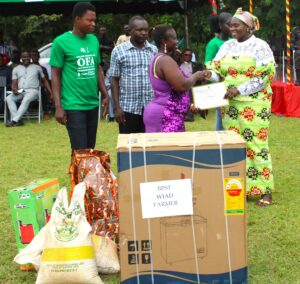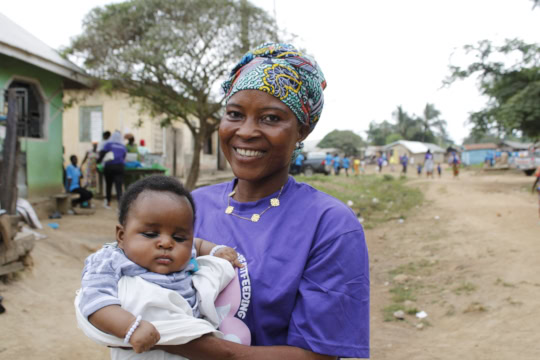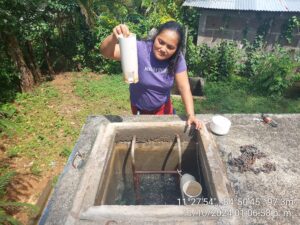Farmers Working Together for the Common Good
By Rodolfo Ricardo Hernandez Navas, Agricultural Extension Program Officer
Self-Help International (SHI) has a presence in many places in Nicaragua, but today we want to share the experience of a group of farmers who belong to the community called Las Minas.
Las Minas is located in southern Nicaragua about 36 miles from the Self-Help International (SHI) head office in San Carlos. It is a completely rural place, and its only access is through a dirt road in poor condition. In order to get to other communities people must take a truck redesigned to transport people, or travel by horseback or motorcycle.
The population is made up of people who produce crops, such as corn and beans, and livestock. In many cases the plots of land they have are not large enough for both activities, so they have to rent additional land.
Crops Were Not Successful
Farmers in Las Minas were disappointed with their crop yields. They had to incur many expenses, including rent for their land, seed and fertilizer, and labor for both planting and harvesting. In the end, they got just enough crops for their own consumption. Some times they managed to recover what they spent, but other times not even that. They became discouraged, and no longer believed that there were ways to improve their situation.
Thanks to their community leader, José Ariel Aguirre Villareyna, the Las Minas farmers changed their way of thinking. Ariel tells that some of them started by working on his plot during the planting or harvest season. They became interested in the new planting techniques and the certified INTA-Nutrader seed corn that he was using.
Ariel understood their needs and encouraged them to become members of the SHI Agriculture Program. The farmers acquired knowledge and experience through demonstration plots and field days presented by the SHI Agriculture Program officer, Rodolfo Hernandez. They learned about the “double-row” planting technology for corn, which allowed them to grow more plants on the same amount of land, with increased use of fertilizer to feed the plants.
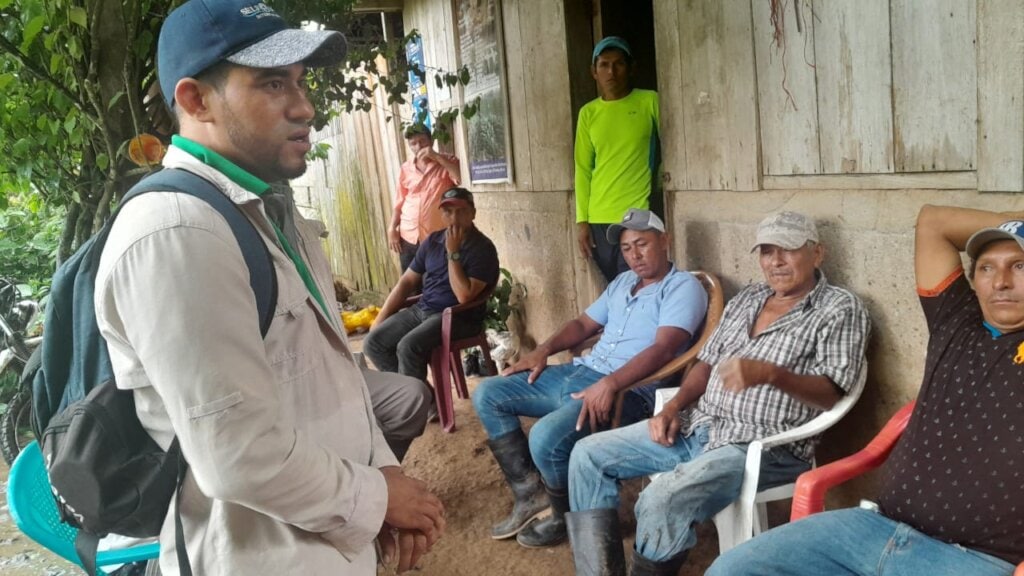 New Seed and New Planting Techniques
New Seed and New Planting Techniques
As the years passed the group saw that they didn´t have to plant large areas of land to yield enough corn for their needs. Instead they could obtain the same or a larger amount of corn using the Nutrader seed and the double-row planting technique on a smaller piece of land. They also realized that because the Nutrader corn had higher protein it improved the diets of their family members. They could keep what they were going to consume during the year and sell the surplus to obtain income for basic household expenses, as well as purchase tools for work.
Others shared that they have used the profits from their crops to pay for their children’s education, improve the conditions of their homes by purchasing solar panels for lighting purposes, and buying some calves, cows and pigs to grow and sell for a better price. They can even feed the Nutrader corn to their animals, which allows them to gain weight faster. This is a good way for them to save their money, as they don´t have a bank in their community, and the nearest one is located in the city of San Carlos, about 70 miles away.
The group now is made up of 28 people, not including the leader. They are open to any prospective new member interested in learning new things. To obtain the benefits such as training sessions, implementation of experimental plots and access to credit, it is necessary to meet certain requirements. The main one is to really want to work to change their lives for the better, and to help others by sharing what they have learned.
Those who have stayed have done so because they have seen many benefits from the program. The first is a change in their way of thinking. They are able to set goals and work until they achieve them. They constantly meet to share their experiences, skills, and problems, and propose possible solutions. They have reinforced trust among themselves to the point that if something benefits or harms them they feel comfortable facing it. It leads to better communication among themselves, their leader, and the Agriculture Program officer. Now, if one of the farmers attends a meeting, that farmer invites the others and explains things to the ones that weren´t able to attend.
Group Action Overcomes Problems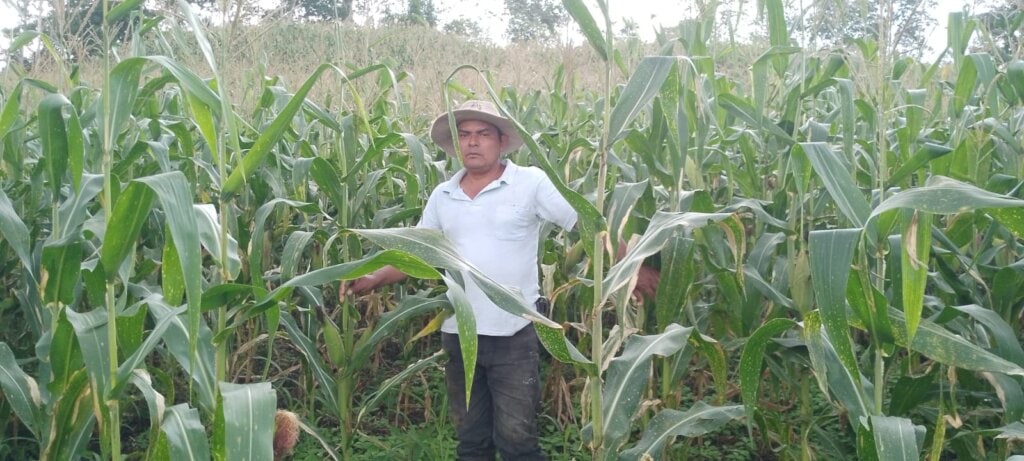
The market is a challenge for them to face, but they are doing some strategies as a group. They market their products all together, so they can negotiate a better price. They are hoping to purchase silos (metal storage tanks) to protect their grain, so they can wait to sell it when the corn has a higher price. They traditionally use plastic bags or sacks to store their corn, but mice or other animals can chew through them and destroy the grain.
The purchase of inputs is also done as a group, as a single order, to get a better purchase price. They buy the inputs and products from a single supplier, which generates profits by receiving a discount. They even get their products and inputs delivered in a single truck, ensuring cheaper transportation for all of them. All of this requires trust not only among themselves, but also in the organization
When they request access to credit from Self-Help International, they do it together. It helps them afford the necessary inputs for their crops. They receive a single loan which covers the whole group. The credit provides a great opportunity for them, since the interest rate is low compared to other financing entities, and because SHI doesn´t ask for guarantees.
Some of the farmers stated that they now do not eat any other variety of corn, since Nutrader has a sweet flavor. Tortillas, which are the daily staple food of every rural Nicaraguan person, can be prepared in the morning and when it is noon they are still soft and delicious. Using the traditional corn, the wives had to make a small portion to be eaten at a single time, because if they saved tortillas from the morning, by the time they wanted to eat them they were hard and dry. Now the women save time and know that they are getting better nutrition with the Nutrader corn.
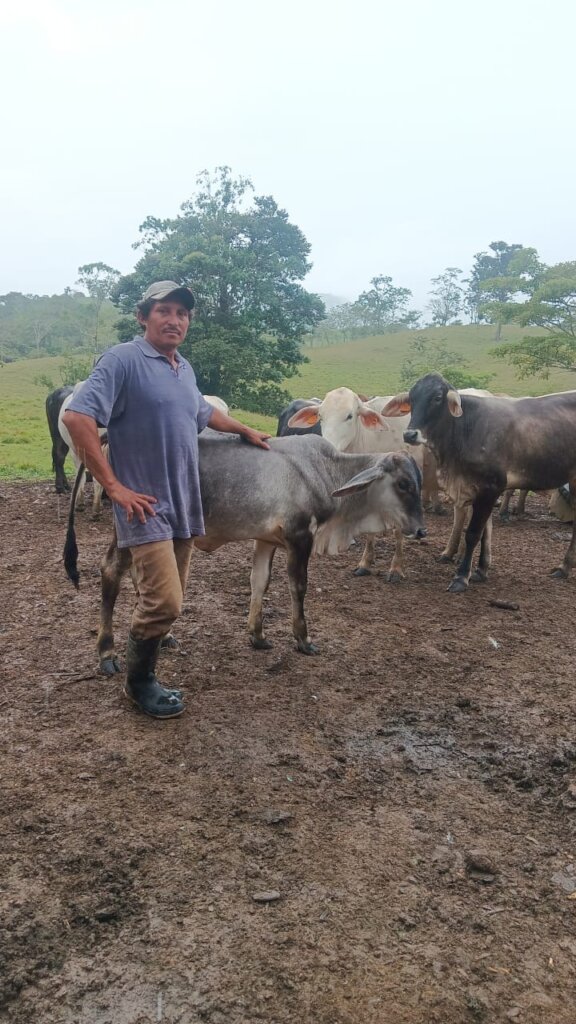
Problems Remain
The farmers encourage their neighbors to plant the same variety and quality of corn, because they understand that if the seed becomes cross-pollenated it loses the high protein properties. They are also concerned about the lack of qualified personnel for labor, because people are emigrating more than ever. Now it is no longer only to Costa Rica but also to the United States and Spain. Even so, the members of the group say that they have adressed this problem by helping each other at the time of planting and harvesting. If crops are affected by pests, they find out what other farmers have put on their plots and if it works, then they pass the word to apply the same product. In the end, everyone works as a big family.
Now they have confidence in the INTA Nutrader corn variety, the double-row planting technique, and the educational service and financing that Self-Help International provides. They said: “It took us time to get to this level, but with the knowledge and experience we acquired we have finally arrived at a point of self-sufficiency. At the beginning, we started with the smallest plots, planting less than an acre, but as time went by we managed to overcome our fears and plant up to 3 acres.”
They continued, saying, “Now we understand that this is the best way to keep moving forward, working as a group, so we are willing to continue supporting and learning for the common good of everyone and the community.”
“The organization trusts us, and this is important for us because that means that our words have value. At Self-Help International we feel like we are part of them, so we feel like we are really a big family and we have the confidence to propose things, ask for support and give our ideas if necessary. We appreciate all the support we have obtained from Self-Help International and from our community leader because, thanks to them, we are now part of a program that gives us a common goal which are able to achieve.”

